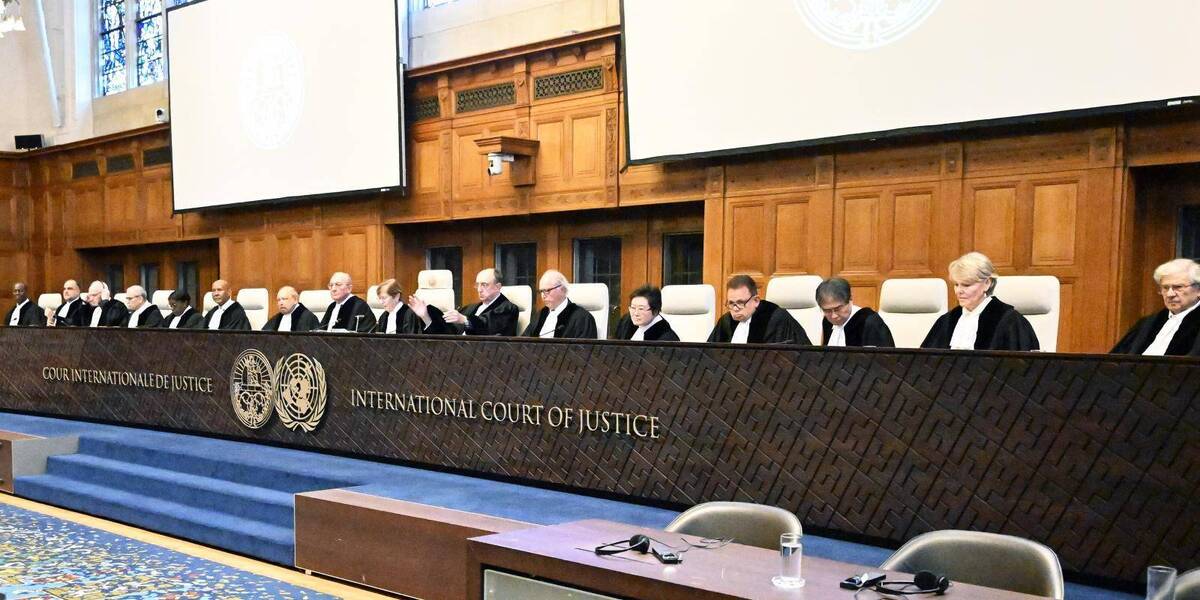Following South Africa’s request to the International Court of Justice to issue a temporary order in the case brought against the Zionist regime to stop the genocide of the Palestinians, the Hague Court issued a temporary order by a majority vote and asked the Zionist regime to stop the actions of the armed forces of this regime, which is an example of the crime of genocide.
On December 29, South Africa filed a complaint against the Israeli regime in the International Court of Justice, accusing the Zionist regime of violating the 1948 Genocide Convention during its military operations in the Gaza Strip. The prosecutors of this court reviewed the evidence presented by South Africa and the defenses of Tel Aviv’s representative in two days.
Finally, on Friday, 26th of January, the Hague Court announced its decision on “emergency and temporary measures” to suspend the military activities of the Zionist regime in Gaza.
The President of the International Court of Justice, Joan Donahue, read the initial ruling of this court and said that this court is aware of the current tragedy in Gaza and condemns the continuous war killings there.
The President of The Hague said that South Africa has considered what is happening in Gaza as a violation of the convention on the prohibition of genocide. However, the court will not rule whether Israel has violated its obligations under the convention. Notwithstanding, the court rejects Israel’s request to set aside the case. Currently, the court will not decide on whether mass killing has occurred or not, but it will rule on the possibility of mass killing. Information shows that more than 25 thousand Palestinians have been killed, and more than 2 million people have been displaced during the war. The Palestinian people are protected under the convention on the prohibition of mass killings. Early reports show that Gaza has become a place of despair and death.
In other words, it can be said that this ruling is in favor of the Palestinians, South Africa, and the supporters of Palestine. Still, considering the non-binding nature of the Court’s decision, it should be said that the Court’s entry into the issue of the release of Zionist prisoners is in the interest of the Israeli regime. As usual and within the framework of this regime’s permanent policy about international documents, this issue will be why this regime does not implement the court’s orders in the matter of temporary appointment. At the same time, some analysts and international law experts considered the initial decision of the International Court of Justice regarding South Africa’s complaint to be the most significant blow to the dignity and status of the Zionist regime in recent history.
Youssef Moulaei, a university professor and an expert on international law issues, in an interview with the Strategic Council of Foreign Relations, said that the judgment of the Hague Court on South Africa’s complaint is “unprecedented” in this regard because the plaintiff is not involved in the subject of the complaint and is not a party to the dispute. Still, as a member of the Convention for the Prohibition of Torture and Genocide, it could file this lawsuit. South Africa used this opportunity due to political sensitivities.
Referring to the court ruling, he said that the “temporary order” has now been issued. In other words, the Court has asked the parties not to escalate the situation further. At the same time, it examines the main case, which may take several years, and has asked the Israeli regime to end its attacks against the people of Gaza so that the Court can do its work in peace.
This university professor said that in the past, international organizations, including the UN General Assembly, the Human Rights Council, and other institutions, have issued many resolutions against the Israeli regime. He added that despite the influence that the Israeli regime has in these assemblies and among governments, more than 200 resolutions have been issued condemning this regime. It is only in the Security Council that resolutions against Israel are vetoed.
Referring to the fact that the interim order of the Hague Court is not binding at this stage, he said that although the decision of the Hague Court can come with the help of public opinion against the actions of the Israeli regime around the world and create global responsibility for the supporters of Israel and its government, currently it does not prevent the actions of the Israeli regime in Gaza.










0 Comments